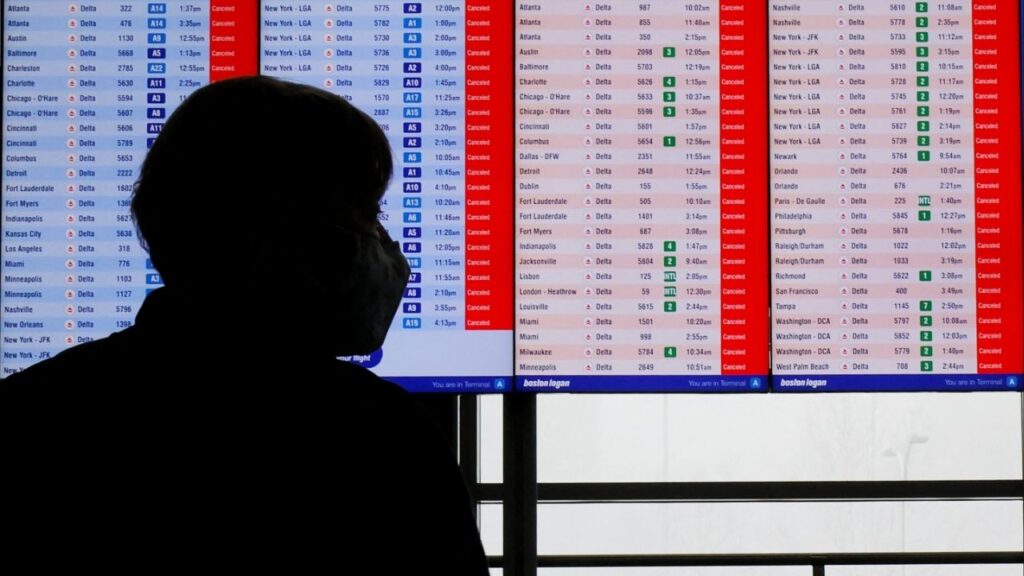Share
A new law set to take effect in California on July 1st will drive housing prices way up. Some estimates put the number at hundreds of thousands of dollars per home.
A statewide coalition of community leaders, opinion-makers, and minority advocates says the law — SB 743 — targets people who are the least able to afford it. They’ve filed a lawsuit in San Bernardino County to try to get it stopped.
Listen to this article:
“As a Berkeley Democrat, I am stunned that it’s gone so far because my party purports to be fair-minded, and to care about civil rights,” attorney Jennifer Hernandez told GV Wire by Zoom.
Hernandez is part of a group called “The Two Hundred” that says the law is discriminatory.
“It’s not a good day for minority Californians seeking to acquire homeownership,” Hernandez said. “It’s not about greenhouse gas, it’s about forcing people into elevator buildings as renters, and riding the bus.”

“It’s not a good day for minority Californians seeking to acquire homeownership.” – attorney Jennifer Hernandez
But proponents say the law, which was passed in 2013 and signed by then-Gov. Jerry Brown, is the best way to cut greenhouse gas emissions. It seeks to significantly reduce the “vehicle miles traveled,” or VMT, by people buying new homes.
The Goal of SB 743
Effective July 1, projects will no longer be assessed a fee by how much traffic congestion is created. Instead, VMT is applied to new developments. For instance, if a person drives to multiple places a day — work, store, soccer practice, etc. — all of those miles are counted up. Then the VMT fee is calculated for the development.
Hernandez says the goal is clear: “They don’t care about today’s people, they want all future people living in apartments with elevators and taking the bus in the name of global climate change.”
Telecommuting in a post-COVID-19 world will play no role in mitigating costs to offset vehicle miles traveled.
“If you’re not buying public transit passes or engaging in mythical exercises of, you know, people taking a bike ride for 17 miles after dropping off the kid, they’re just not willing to credit it,” Hernandez said of VMT mitigations recognized by the state.
Lawsuit Against State of California
The Two Hundred group sued the governor’s Office of Planning and Research in December of 2019.
“We put 250 pages worth of documented facts in that complaint,” Hernandez said. “We have more than a dozen causes of action. But California, at least under the Brown administration, and so far at least, the California Air Resources Board and OPR, and this administration aren’t moving an inch.”
200 v OPR Complaint Filed 12 18 (2) (Text)
As far as whether anything will prevent the state from implementing SB 743 on July 1, Hernandez said, “Stay tuned on that. We’ll have a new filing soon.”
California Pushes Forward with July Implementation
GV Wire reached out to the director of the governor’s Office of Planning and Research, Kate Gordon, to see if the state planned to delay VMT — due to COVID-19, community concerns, or California’s pandemic-induced fiscal crisis.
Gordon responded via email: “SB 743 was passed in 2013 and the shift from level of service (LOS) to vehicle miles traveled (VMT) that it called for is already part of the analysis of greenhouse gas emission impacts, energy impacts, and air quality impacts in a number of regulatory processes. Many jurisdictions have also already made the shift.
“Regarding the impact of COVID-10 and social distancing on this deadline: While many local governments are currently closed in order to practice social distancing, the shift to VMT does not require an action on the part of the jurisdiction to formally adopt VMT. Some jurisdictions have opted to formally adopt a threshold via ordinance or resolution, but neither is required.”

“While many local governments are currently closed in order to practice social distancing, the shift to VMT does not require an action on the part of the jurisdiction to formally adopt VMT.” – Kate Gordon, director of the governor’s Office of Planning and Research
Gordon told GV Wire in March that the VMT standard would not only benefit the environment but also the economy.
“This shift provides regional and local planners with new tools to expand transportation options for commuters and incentives for infill development so that Californians have the opportunity to spend less time in transit,” Gordon said. “This shift comes at an exciting time for transportation innovation, with new options like on-demand vanpools, e-bikes, and scooters, and electrified transit coming on line every day.
“(U)sing the ‘vehicle miles traveled’ metric can create new job opportunities in these emerging transportation industries while lowering transportation costs for all Californians.”
A video from Gordon’s office explains why the state believes VMT is a better system of evaluating vehicle impacts.
Cost Estimates Range Substantially
The Two Hundred coalition estimates the cost of a house in San Bernardino County will jump anywhere from $40,000 to $400,000 because of VMT’s required mitigations.
The amount is determined by how many VMTs the state wants to offset. Early guidance from OPR suggests that some areas of the state must reduce those miles by 15%. But Hernandez worries the language is vague and states that 100% of VMT must be offset in all projects. That is why there is such a wide fluctuation in cost estimates.
The Fresno Council of Governments is working to come up with a calculation for the region in the coming weeks.
The added costs, for example, could be determined by how much a bus pass costs in the region over 30 years. It’s one of the prime ways to mitigate miles traveled. In theory, Hernandez said, people buying new homes will pay other people to ride the bus to help offset the miles they drive.
Watch: How VMT Is Calculated
Civil Rights Issue
“My belief is that if the vast majority of the affected population of these ill-conceived policies continued to be white Californians, they wouldn’t have gotten off the ground,” said Hernandez. “The reason this even has traction is because it’s aimed primarily at minority California.”
Hernandez and her group met with the chairwoman of the California Air Resources Board, Mary Nichols, about their concerns. The group told Nichols that her idea of affordable housing is something they’ve fought hard to get away from.
“We’ve fought our entire career to get out of the projects and into homeownership. It’s not acceptable for (the state) to use climate to get us back in the projects,” Hernandez said she told Nichols.
Hernandez said it was a short meeting, and Nichols appeared offended.
The Two Hundred recently sent a letter to the Southern California Association of Governments after its approval of a 25-year housing and transportation plan for the region. Part of the letter reads:
“Latino, African American, and Asian American families (along with students and our young workforce) are disproportionately victimized by the confluence of massively destructive state, regional and local housing policy choices. SCAG must be part of the housing solution – but this Plan exacerbates all of these problems by acknowledging just one policy goal – reducing Vehicle Miles Traveled.”
GV Wire reached out to SCAG for a response, but have yet to hear back.
Voice Your Opinion
If you want to express your thoughts — pro or con — about the law, contact your Assemblymember, state Senator, or Gov. Newsom. Click this link to find lawmaker contact information. Newsom can be reached at this link.
Many of the Valley’s representatives weren’t in the Legislature when the bill was signed. Assemblyman Jim Patterson (R-Fresno) voted against the bill in 2013. Patterson and state Sen. Andreas Borgeas (R-Fresno) are the only Valley lawmakers to tell GV Wire they would vote to delay its implementation.
Categories



















